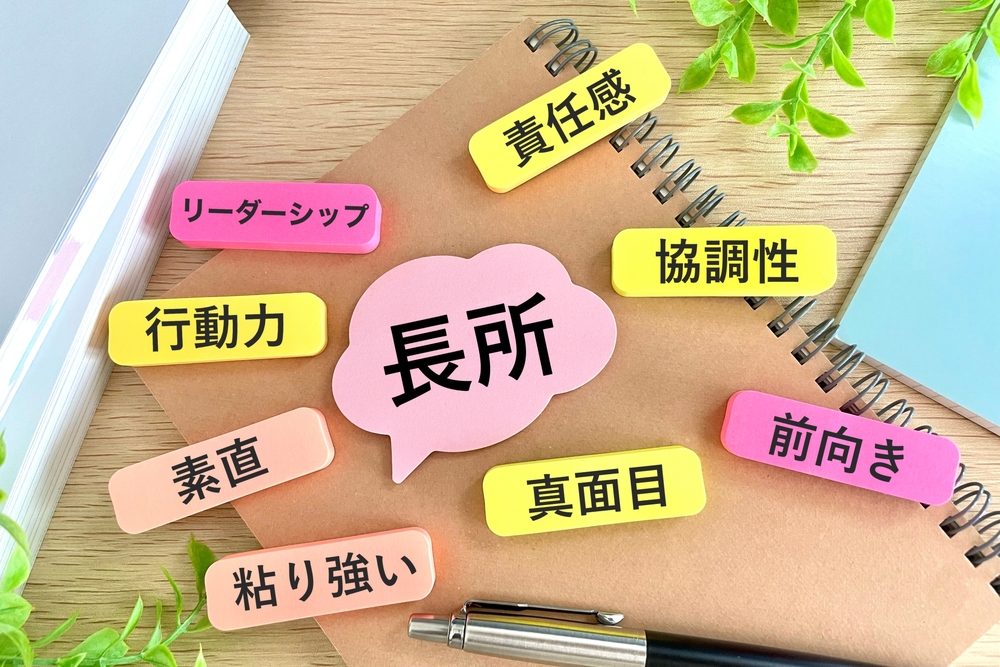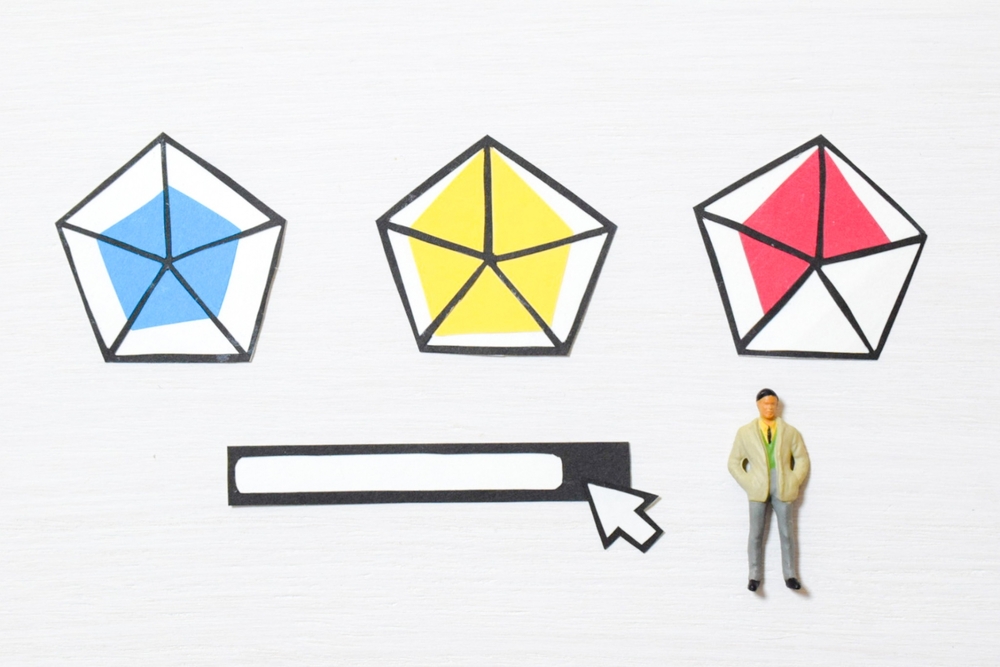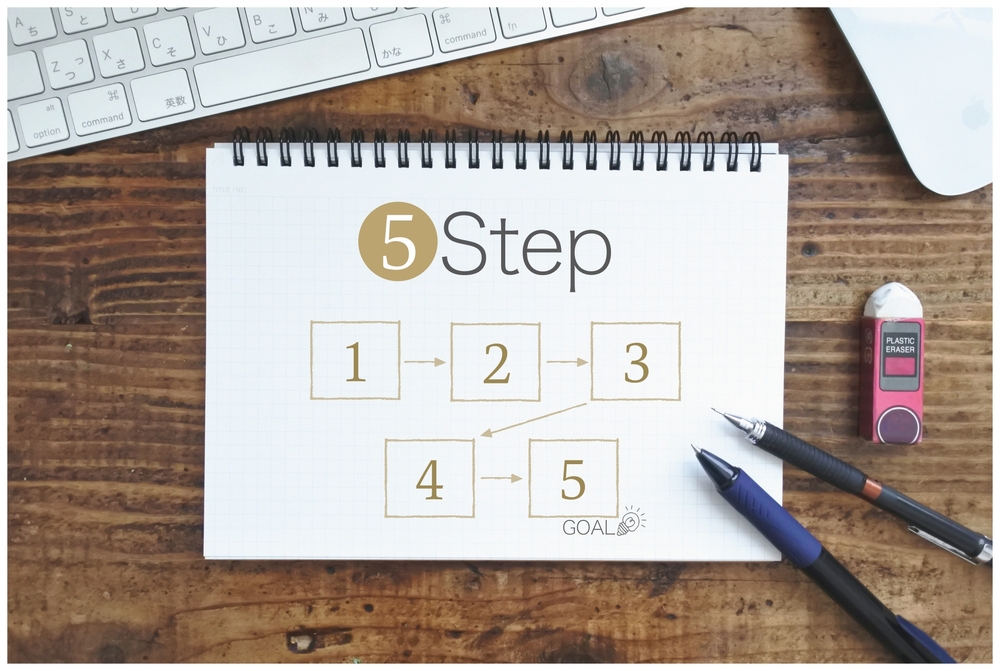自己分析を通じて自身の強み、弱み、価値観を深く理解することで、自分にあった職場を見つけ、転職活動を有利に進めることが可能です。しかし、自己分析を行おうと思っても、何から始めたらよいかわからない方も多いでしょう。
そこで今回は、転職で役立つ自己分析の方法を紹介します。記事内では、自己分析をする理由や自己分析時の注意点についても詳しく解説しているので、転職を検討している方は、ぜひ参考にしてください。

自己分析を通じて自身の強み、弱み、価値観を深く理解することで、自分にあった職場を見つけ、転職活動を有利に進めることが可能です。しかし、自己分析を行おうと思っても、何から始めたらよいかわからない方も多いでしょう。
そこで今回は、転職で役立つ自己分析の方法を紹介します。記事内では、自己分析をする理由や自己分析時の注意点についても詳しく解説しているので、転職を検討している方は、ぜひ参考にしてください。
By gaining a deeper understanding of your strengths, weaknesses and values through self-assessment, you can find the right workplace and make the most of your job search. However, many people may not know where to start when they want to carry out self-analysis.
This article therefore introduces methods of self-analysis that can help you in your job change. The article also provides detailed information on the reasons for self-analysis and points to consider during self-analysis, so if you are considering changing jobs, please refer to this article.

自己分析とは、自身の性格、価値観、能力、経験、興味などを分析し、自分の強みやアピールポイントを理解することです。自己分析を行うことで、自分がどのような仕事に向いているのか、どのような仕事にやりがいを感じるのか、どのような企業の文化や環境に合っているのかが明確になります。
自己分析を十分に行っていないと、自分の希望や条件に合わない転職先に飛び込んでしまう可能性が高くなります。その結果、仕事に満足できなかったり、職場に馴染めなかったり、パフォーマンスが発揮できなかったりするリスクが高まるでしょう。これは、自分自身だけでなく、企業や周囲の人にとっても不利益となります。

Self-assessment is the process of analysing your personality, values, abilities, experience and interests to understand your strengths and appeal points. Self-analysis will help you to clarify what kind of work you are suited to, what kind of work you find rewarding and what kind of company culture and environment you fit into.
If you do not carry out sufficient self-analysis, you are more likely to jump into a new job that does not match your own desires and requirements. As a result, you will be at increased risk of not being satisfied with your job, not fitting in or not performing well in the workplace. This is detrimental not only to yourself, but also to the company and those around you.

転職時に自己分析を行う理由は、主に以下の3つが挙げられます。
1つずつ見ていきましょう。
転職時に自己分析が必要な理由の1つは、自分のアピールポイントを明確にするためです。自分のアピールポイントとは、自分が持っているスキルや経験、性格や価値観など、他の人と比べて優れていると思える部分のことを指します。
ライバルが数多くいるなかで、採用担当者に「一緒に働いてみたい」と思ってもらうためには、こういった強みを具体的に伝え、「いかにその企業にとって必要な人材」であるかをアピールしなければなりません。
そのためには、自己分析をしっかりと行い、自身の強みを把握して、転職先企業でどのような活躍ができるかを明確にしておくことが大切です。
自身に適した転職先を見つけるためにも、自己分析は不可欠です。仕事選びの軸としては、「やりたい仕事」と「向いている仕事」の2つの視点があります。
やりたいことと向いていることがイコールであればよいのですが、必ずしもそうとは限りません。たとえば、自分のやりたいことを追求して転職しても、実際に働いてみると「自分のスキルと業務内容が合っていない」「イメージしていた働き方とは違った」など、理想と現実のギャップが生まれ、再び転職を余儀なくされる可能性があります。
こういったギャップを生まないためには、しっかりと自己分析を行い、自分の持つスキルや経験がどのような職種に活かせるのか、そしてどのような環境であれば自分の強みを最大限に発揮できそうかを正確に把握しておくことが大切です。
また、自己分析を行った結果、これまで考えたこともなかった仕事が実は自分に向いていると気づくこともあります。入社してからギャップに悩まされないためにも、必ず事前に自己分析を行うようにしましょう。
面接官から質問された際に、漠然とした回答ではなく、自身の経験や成果を具体的なエピソードを交えて説明するためにも自己分析は重要です。
そもそも、面接官は応募者について以下の点を知りたいと考えています。
これらの質問に対して具体性のある回答を提供するためには、自分自身のことを正確に理解し、きちんと言葉で伝えられる状態にしておかなければなりません。
具体的なエピソードを挙げることで、話の信ぴょう性が高まり説得力が増すほか、自分の能力をより明確に理解してもらいやすくなります。

There are three main reasons for carrying out self-analysis when changing jobs
Let's look at them one by one.
One of the reasons why self-analysis is necessary when changing jobs is to identify your appeal points. Your appeal points are those aspects of your skills, experience, personality and values that you consider superior to others.
In order to make the hiring manager want to work with you in a situation where there are many rivals, you need to be able to concretely communicate these strengths and show how you are "a necessary human resource for the company".
To this end, it is important to conduct a thorough self-analysis, understand your strengths and clarify how you can play an active role in the company you are changing jobs with.
Self-analysis is essential to find the right job for you. There are two perspectives on choosing a job: the job you want to do and the job you are suited to.
It would be good if what you want to do and what you are suited to are equal, but this is not always the case. For example, if you change jobs in pursuit of what you want to do, but then actually start working, you may find that your skills do not match the job description, or that the way of working is different from what you had imagined, creating a gap between your ideal and reality and forcing you to change jobs again.
To avoid such gaps, it is important to carry out a thorough self-analysis and understand exactly what kind of job you can make use of your skills and experience and in what kind of environment you can make the most of your strengths.
In addition, as a result of your self-analysis, you may realise that a job you had never considered before is actually suited to you. To avoid suffering from gaps after you join a company, make sure you carry out a self-analysis beforehand.
Self-analysis is important so that when the interviewer asks you a question, you can explain your experiences and achievements with specific episodes, rather than giving vague answers.
To begin with, the interviewer wants to know the following about the applicant
In order to provide concrete answers to these questions, you must have an accurate understanding of yourself and be able to put it into words.
Citing specific stories will make your story more believable and persuasive, and will also help you to gain a clearer understanding of your abilities.
Related articles
One-point advice on interview preparation for a new job! Also explains key points in advance preparation.

転職における自己分析は、以下のステップで進めていくのが一般的です。
ここからは、各ステップに分けて具体的に解説していきます。
まずは、これまで培ってきた自身のスキルやキャリアを振り返りましょう。過去の仕事の業務内容、取り組んだプロジェクト、習得した技術や資格などをリストアップします。
この棚卸しは、自身がこれまでに培ってきた能力や経験を体系的に整理し、自分の得意分野や強みを明確にすることを目的として行います。とはいえ、社会人経験が浅いと「自分に特別なスキルや経験はない」と感じる方も多いでしょう。
しかし、キャリアの棚卸しは、何も成果を上げたり、特別な業務に従事したりした経験だけを振り返るのではなく、日常的に行っている業務も含まれます。
同じ業務に取り組んでいても、取り組み方や工夫の仕方、学んだ内容は人それぞれです。そのため、どのような業務を行っていたか、それをどのように遂行してきたか、そして何を学んだかという点を深堀りすることが重要です。こうした深掘りにより、自分自身が気づいていなかった能力や、向き不向きを発見しやすくなります。
次に、自身の興味・関心があることを洗い出していきます。これは、仕事だけでなく、プライベートでの趣味や活動も深く掘り下げ、仕事をしていくなかで活かせそうなスキルを見つけることが目的です。
たとえば、同じ趣味を持つ仲間との交流を通じて得た人間関係のスキルや、個人的な興味から追求した知識は、職場での新しい役割や責任を担ううえで貴重な資源となるかもしれません。このように、自身の経験や趣味から学んだスキルは、意外な形で仕事に応用できることも多く、新たなキャリアパスを切り開くきっかけになることもあります。
自己分析を行う際は、これまでの人生で「何に時間を費やしてきたか」「どのような活動に興味を感じたか」を細かくリストアップし、それらがビジネス上でのスキルや将来のキャリア目標とどのように関連しているかを考えましょう。
自身のスキル・キャリアが整理できたら、次は自身の性格を分析しましょう。仕事にはそれぞれ、求められる性格や能力が異なります。また、採用活動を行うなかで、企業はスキルや経験だけでなく、応募者の性格や価値観にも着目します。
組織の文化に適合するか、チーム内で協力して業務を遂行できるかどうかも評価の対象となるため、転職面接時に自分の性格が仕事にどのようにプラスに作用するかを具体的に説明できるようにしておかなければなりません。
そのためには、「自分がどのような仕事に向いているのか」「どのような仕事にやりがいを感じられるのか」、また「どのような環境やチーム構成で最も能力を発揮できるか」「改善すべき点は何か」を理解することが大切です。
具体的には、以下のような観点から自身の性格を振り返ることで、自分に合った仕事・職場を見つけやすくなるでしょう。
| 行動特性 | ・アクティブか、慎重か ・計画的か、臨機応変か ・チャレンジ精神が旺盛か、安定志向か など |
|---|---|
| 思考特性 | ・ストレス耐性がどのくらいあるか ・人との関わりを好むか、一人で集中して作業するのが好きか など |
| 価値観 | ・仕事とプライベートのバランスを重視するか ・自己成長、自己実現を重視するか など |
| コミュニケーション | ・聞き上手か、話し上手か ・表現力、コミュニケーション能力が高いのか など |
自身の性格を分析できたら、次はこれまでに洗い出した情報を踏まえて、自身の強みや魅力を客観的に言語化していきます。
たとえば、「何事も諦めずに行動し続けられる」ことが強みだとしたら、その強みを活かした具体的なエピソードを肉付けし、そこから得られた学びや成果などを書き出しましょう。
面接において、単に「私の強みは〇〇です」と伝えただけでは、説得力を持たせられません。しっかりとエピソードを交えて、自身の強みがどのように応募先企業で活かせるのかを具体的に示すことが大切です。
最終段階として、転職を考え始めたきっかけを思い出し、将来どうありたいか、転職を通じて何を達成しようとしているのかをはっきりさせましょう。
「上司とうまが合わなかったから」「長年働いているのに給与が上がらないから」といったマイナスな理由だけでなく、「スキルを活かして次のステージで活躍していきたい」などの前向きな理由も踏まえることが大切です。
できるだけ具体的な目標を設定することで、どのような業界や職種が自分の望む将来につながるかを判断する基準ができるはずです。

Self-assessment in a career change generally involves the following steps
From this point onwards, each step will be broken down into specifics.
First, reflect on your own skills and career that you have developed. List your past work duties, projects you have worked on, skills and qualifications you have acquired, etc.
The purpose of this inventory is to systematically organise the skills and experience you have developed and to clarify your strengths and areas of expertise. However, many people with limited working experience may feel that they have no special skills or experience.
However, a career inventory does not only look back on experiences in which you have achieved any results or engaged in any special tasks, but also includes the tasks you perform on a daily basis.
Even if you are working on the same tasks, the way you approach them, the ways you devise them and the lessons you learn are different for everyone. Therefore, it is important to dig deeper into the type of work you were doing, how you carried it out and what you learnt. By digging deeper, it is easier to discover abilities you may not have realised you had and what you are suited to.
The next step is to identify your own interests and concerns. The purpose of this is to delve deeper into your personal hobbies and activities, as well as your work, to find skills that you may be able to utilise in the workplace.
For example, interpersonal skills gained through interaction with peers who share similar interests, or knowledge pursued through personal interests, may be a valuable resource in taking on new roles and responsibilities in the workplace. In this way, skills learned from your own experiences and hobbies can often be applied to work in unexpected ways and can open up new career paths.
When conducting a self-assessment, make a detailed list of what you have spent your time doing and what activities you have found interesting in your life, and consider how these relate to your business skills and future career goals.
Once you have organised your skills and career, the next step is to analyse your personality. Each job requires different personalities and abilities. In addition to skills and experience, companies also look at the applicant's personality and values during the recruitment process.
Whether you fit into the organisation's culture and whether you can work well within a team is also a factor to be evaluated, so you must be able to explain in detail how your personality will positively affect the job during the job interview.
To this end, it is important to understand what kind of work you are suited to, what kind of work you find rewarding, what kind of environment or team structure you can best demonstrate your abilities in, and what areas need improvement.
Specifically, reflecting on your personality from the following perspectives will make it easier to find the right job or workplace for you.
| Behavioural characteristics | Active or cautious? Planned or flexible? Are you a challenge-seeker or a stability-seeker? |
|---|---|
| Thought characteristics | How stress-resistant are you? Do you like to interact with people or do you prefer to work alone and concentrate? Do you prefer to work alone and concentrate on your own work? |
| Values | Do you attach importance to a balance between work and private life? Do you value personal growth and self-fulfilment? Are you a good listener or a good speaker? |
| Communication | Are you a good listener or a good speaker? Do they have good communication skills? Are you a good listener or a good speaker? |
Once you have analysed your own personality, the next step is to objectively verbalise your strengths and attractiveness based on the information you have identified so far.
For example, if your strength is that you can keep taking action without giving up, flesh out specific episodes in which you utilised this strength, and write down the learnings and achievements you gained from these episodes.
In an interview, simply stating that "my strength is 00" will not be convincing. It is important to be specific about how your strengths can be utilised in the company you are applying to.
As a final step, remember why you started thinking about changing jobs and be clear about where you want to be in the future and what you are trying to achieve by changing jobs.
It is important to consider not only negative reasons such as "I don't get on with my boss" or "I've been working here for a long time and my salary hasn't increased", but also positive reasons such as "I want to utilise my skills and take my career to the next stage".
By setting as specific a goal as possible, you will have a basis for deciding what kind of industry or position will lead to the future you want.

自己分析を行う際にとくに注意したいポイントは、主に以下の4つです。
1つずつ詳しく解説します。
自己分析を行う際には、自身の強みや経験を深く掘り下げて理解することが求められます。ここで重要なのは、抽象的な表現を避け、自分の個性や能力を具体的に、かつ独自の方法で表現することです。
汎用的なフレーズや一般的によく使われる表現に頼ってしまうと、自分の価値が伝わらず、結果として他の応募者との差別化を図ることが難しくなります。たとえば、自己PRや志望動機を述べる際には、ただ「キャリアアップがしたい」と言うのではなく、具体的な目標や達成したいことを明確に示すのが効果的です。
自身の強みに関しても「協調性がある」と言うだけでなく、実際にチームでどのように協力して成果を出したか、また「責任感がある」ことをアピールするのであれば、具体的にどのような状況でどのように責任を全うしたかを示すことで、言葉に説得力を持たせられるでしょう。
以下は、問題解決能力が高いことをアピールする際の抽象的な表現と具体的な表現の例です。
【抽象的な表現】
私は問題解決能力が高いです。
【具体的な表現】
前職では、プロジェクトマネージャーとして、プロジェクトの進行中に発生した問題を迅速かつ的確に解決し、プロジェクトを成功に導きました。問題発生時には、関係者を集めて状況分析を行い、解決策を検討・実行しました。
自己分析を行ったことで、自分の長所だけでなく短所や弱点も明らかになります。その際、短所や弱点を単に否定的に捉えるのではなく、プラス表現に変換することで、マイナス点を強みに変えられる場合があります。
弱みを強みに変換した例は次の通りです。
| マイナス(短所) | プラス表現に変換した例 |
|---|---|
| 完璧主義で時間がかかってしまう | 責任感があり、高いクオリティの仕事を目指す |
| 短期間で飽きやすい | 新しい挑戦を常に求める |
| 優柔不断 | 物事を多角的に捉えられる |
| 神経質 | 計画性があり、先を見越して行動できる |
他己分析とは、周囲の人から自分自身の性格や長所・短所などを客観的に分析してもらうことです。
自己分析は自分自身の視点で分析を行うため、主観的な視点になりがちです。一方、他己分析では周囲の人からの客観的な意見を得られるため、自己分析では気づかなかった自身の新たな強みや弱みを知ることができます。
他己分析を行う際は、できるだけ身近にいる人にお願いするのが効果的です。たとえば、長年付き合いのある友人や家族は自分の性格をよく理解しているため、的確な意見を得られる可能性が高いです。また、上司や同僚に聞いてみることで、仕事における長所・短所を知ることができるでしょう。
自己分析は一度きりではなく、定期的な見直しと更新が必要です。社会人として経験を積んでいくと、周囲の環境や人間関係、自身のキャリアアップなど、さまざまな変化が起こります。
これらの変化に伴って、自身の価値観や思考も日々変化します。そのため、過去の自己分析の結果に固執せず、定期的に最新の情報にもとづき自己分析を行うことが大切です。直近の業務経験や周囲からの評価などを踏まえることで、新たな強みやアピールポイントを発見できるかもしれません。
こうした新しいアピールポイントを定期的にブラッシュアップすることで、自分自身の最新の状態を把握し、キャリアの方向性を明確にすることが可能になります。また、職務経歴書の更新や面接時の自己PRにおいても、自分の「現在」を正確に表現できるようになり、自信を持って自己表現を行えるでしょう。

There are four main points to pay particular attention to when conducting a self-analysis
Explain each one in detail.
When conducting a self-analysis, you are required to delve deeply into and understand your own strengths and experiences. The key here is to avoid abstract expressions and to describe your personality and abilities in a specific and unique way.
If you rely on generic phrases or commonly used expressions, you will not convey your value and, as a result, it will be difficult to differentiate yourself from other applicants. For example, when describing yourself and your motivation for applying for a job, it is effective to clearly state your specific goals and what you want to achieve, rather than just saying 'I want to develop my career'.
In terms of your own strengths, you should not just say that you are 'cooperative', but also show how you have actually worked together in a team to achieve results, and if you want to show that you have a 'sense of responsibility', you can make your words more convincing by showing how you have fulfilled your responsibilities in specific situations.
The following are examples of abstract and concrete expressions that can be used to demonstrate that you have good problem-solving skills.
[Abstract expression.
I am a good problem solver.
[Concrete expression.
In my previous position as a project manager, I quickly and accurately resolved problems that arose during the course of a project, leading the project to a successful conclusion. When a problem occurred, I gathered all relevant parties to analyse the situation, and considered and implemented a solution.
A self-assessment can reveal not only your strengths, but also your weaknesses and disadvantages. In doing so, you may be able to turn a negative point into a strength by converting it into a positive expression, rather than simply viewing the weakness or disadvantage as negative.
Examples of converting weaknesses into strengths are as follows.
| Negatives (cons). | Examples of positive expressions translated into positive expressions |
|---|---|
| Perfectionist and time-consuming | Responsible and aims for high quality work |
| Easily bored after a short period of time | Always looking for new challenges |
| Indecisive | Able to see things from multiple perspectives |
| Nervousness | Plans well and is proactive |
Self-analysis is an objective analysis of your own personality, strengths and weaknesses by those around you.
Self-analysis is conducted from your own perspective and tends to be subjective. On the other hand, in a self-analysis, you can obtain objective opinions from the people around you, which enables you to discover new strengths and weaknesses that you did not notice in the self-analysis.
When conducting a self-analysis, it is effective to ask people who are as close to you as possible. For example, friends and family members who have known you for many years have a good understanding of your personality and are likely to give you an accurate opinion. You can also ask your boss or colleagues to find out about your strengths and weaknesses at work.
Self-assessment is not a one-off event and needs to be regularly reviewed and updated. As you gain experience in the working world, many changes occur in your surroundings, your relationships and your own career development.
Along with these changes, your own values and thinking also change on a daily basis. It is therefore important not to stick to the results of past self-analyses, but to regularly analyse yourself based on the latest information. By taking into account your most recent work experience and the evaluations of those around you, you may be able to discover new strengths and appeal points.
Brushing up on these new points of appeal on a regular basis will enable you to get an up-to-date picture of yourself and clarify the direction of your career. You will also be able to accurately express your 'present state' and express yourself with confidence when updating your CV and presenting yourself at interviews.

今回は、転職で役立つ自己分析の方法を紹介しました。
自身の強み、弱み、価値観、興味、キャリアの目標などを深く理解し、自分にぴったりの職種や業界を見極めるためには、自己分析が欠かせません。自己理解を深めることで、履歴書や職務経歴書の作成、面接時の自己PRにも活かせるため、じっくりと自分自身を見つめ直す時間を作りましょう。
ユナイテッドワールド株式会社では、専任のキャリアアドバイザーが一人ひとりに寄り添い、転職活動をサポートしています。細かい条件面でのご要望やキャリアプランをしっかりとヒアリングしたうえで、あなたに合ったベストな求人をご紹介しているので、効率的に転職活動を進めたいといった方は、お気軽にご相談ください。

In this article, we have introduced a method of self-analysis that can help you in your career change.
Self-assessment is essential for gaining a deep understanding of your strengths, weaknesses, values, interests and career goals, and for identifying the right job and industry for you. Deepening your self-understanding will also help you to use it in the preparation of your CV and resume, and in your personal PR during interviews, so take the time to reflect on yourself carefully.
At United World Inc., dedicated career advisors work closely with each individual to support their job search. After carefully listening to your detailed requirements and career plans, we will introduce you to the best job opportunities that suit you, so please feel free to contact us if you want to move forward with your job search efficiently.
